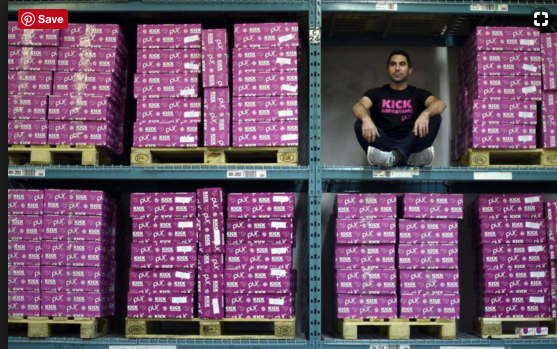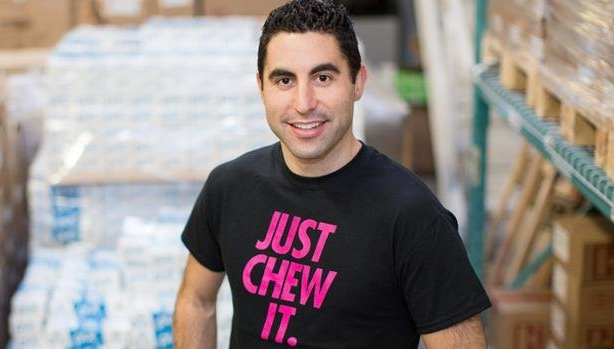In an era of potential global instability, Pür founder offers advice on what goes on in order to make his brand a success.
Written by Ed Hitchins
There is clearly a dark cloud in the skies as we enter the current climate of international trade, especially amongst Canadians. A new study by American Express suggests that while there is confidence in global trade in this state of flux, Canadian businesses are still weary. About half of those surveyed suggested they need to shore up boosting levels of international trade within the next year.
The common understanding amongst businesses is potential difficulties given the changes to trade. Eight in 10 surveyed understand their organization may lose its competitive advantage if barriers came up in international trade, and three quarters (76%) surveyed said it would have a negative impact upon their competitive performance.
Founded in 2010, Jay Klein’s Pür gum had humble beginnings in Toronto. Klein wanted to make a gum that stood out: Vegan, nut and allergen-free with unique and eclectic flavours like chocolate mint and cinnamon. Using natural sweeteners such as the sugar alcohol xylitol, instead of aspartame, allowed the gum to cater to all, including people with food allergies and pregnant women.
The diversity is clearly Klein’s strength: first manufactured in Canada, his network has allowed his product to be manufactured in Switzerland, with it being distributed to now more than 25 countries. His shrewd moves have allowed his company to have been the 10th fastest growing company nationwide in 2016, with revenues between $10 to $20 million according to the Profit 500 list.


Klein shares some of his opinions on why in international business, trade is incredibly vital:
How do you use global trade in your business?
When we started off, we were just selling gum. We started in Canada, and our next logical market was going into the US, but as we continued to meet people at trade shows, we started to understand the link between what consumers were looking for and what we were providing. We saw there was a global need for gum that’s healthy and tasty.
You started in Toronto, and now Pür is being distributed around Europe and even online on Amazon. What would you say is the key to understanding how exactly you’re able to maintain such a global brand?
You start to realize that every market is the same, but different. And for us, some of the learning happened over time. We’ve gone from three countries, to today, being in over 50 countries. The messaging and the flavour profiles in each country are tremendously different. In North America, people are chewing gum for fresh breath or to move their palette. Sometimes, they’re either hungry, or gum is a meal replacement. In Europe you’re still seeing a little bit more smoking, so [people use gum as a replacement for cigarettes]. People have a different reasons to chew gum.
What are some of the misconceptions business owners have about global trade?
We have Canadian culture deeply rooted in what we do, and we have Swiss manufacturing excellence at our company too. While much of that is local, what the world wants and what consumers like is their fruits and vegetables, and they want to know those are local. From a global trade standpoint, local businesses want to connect with people who desire local things. It doesn’t have to be their local. We want to provide that local experience globally; we don’t want people to feel like we’re some big behemoth company that doesn’t care about them.
We care about what our consumers are doing, both locally and globally. Our company has outgrown start-up phase, and as we’ve come through the ranks, we want to still deliver that one-on-one connection. In many of the stores, we still know the managers, we talk to our customers and we doing sampling and engagement. Essentially, we’re in the customer service business.
How does PUR execute global trade?
We get a lot of inbound inquiries from distributors in various countries. And we work with the distributor to make sure that they’re the right fit. Do they distribute to the retailers that we’re looking for? The one thing that businesses have to be careful about with global trade today is getting paid; there’s a lot of distributors just trying to extend terms and put brands at wit. I think a balance in any relationship is when it’s good for the brand and good for the distributor.








